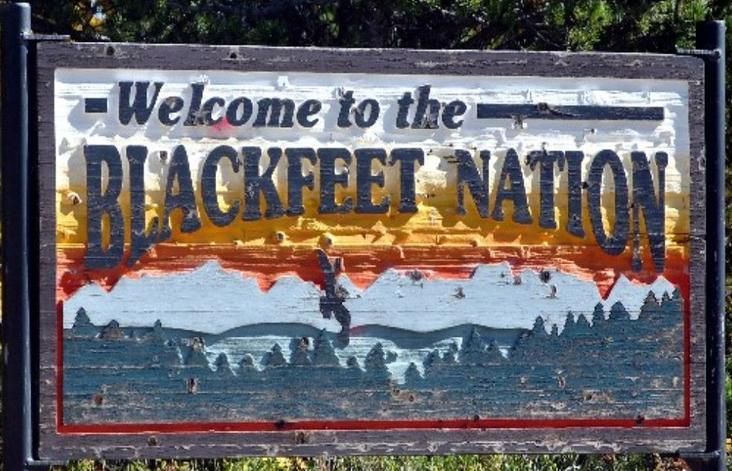Tasks: Borders by Thomas King

- There are three main characters in the short story: the mother, the boy (narrator), and Laetitia. List three implicit character traits that we learn about each person from reading between the lines. Support your answer with examples from the text.
- Why do you think the boy is told to dress up before they cross the border so they "don't look like Americans"? How does the mother view the United States and its culture? Find other examples from the text where attitudes towards the United States are expressed.
- Why do you think the author has chosen to tell the story through the eyes of a young boy and not through the eyes of the mother or someone else? Does he understand what is going on and why his mother acts the way she does?
- Why was the mother so adamant about her citizenship declaration? Do you think she would have reacted the same way if she had been trying to cross the border on her own?
- The mother and the border guard are both very determined, but their motivations are different. Explain what drives them. Are their actions justified?
- Mel claims that the mother is “an inspiration to us all”? What does he mean by that? Do you agree with him? Is she making a political statement or is she just being stubborn?
- What role does the media play in this story? How does it change the outcome of the story?
- What kind of tool is used to symbolise the skewed power balance between the mother and the border guards? How does the power shift at the end of the story?
- There is more than one border in this short story - both physical borders and mental ones. What kind of borders can you identify and what are their symbolic meaning?
What are the themes of this short story? What is Thomas King trying to teach us?
In groups, go through the short story again and pick out the parts that take place on the border. Rewrite these parts into a manuscript for a short play with dialogues for the different characters.
Remember: you are free to leave out things that you feel are less relevant, simplify or change the text, change the number of characters, and so on — you have a lot of creative freedom here. Also, remember that one person can play several parts.
Suggested cast of characters:
- narrator
- mother
- son
- Canadian and American border guards / Inspector Stella Pratt
- Mel
- journalist(s)
Find appropriate props that enhance the theatrical experience. Practise and act out.
Break a leg!
Find out more about the Blackfoot Nation. Write down short answers to these questions. You can use the websites below, but you are also free to find other sources.
- Where is the traditional territory of the Blackfoot People?
- Why are they called Blackfoot (or Blackfeet)?
- Approximately how many identify as belonging to the Blackfoot Nation?
- What is a reserve (Canada) or a reservation (United States)?
- Describe how Blackfoot people traditionally lived, before the white man arrived.
- How were the Blackfoot people treated by the white man and what were the consequences of this treatment?
Websites you may use to find information:
link to the Canadian Encyclopedia: Blackfoot Confederacy
link to Encyclopedia Britannica: Blackfoot people
link to Encyclopedia.com: Blackfoot
link to the website everyculture.com. Countries and their cultures: Blackfoot
Pick one of the tasks and write a longer text. Share your text in a group and get peer feedback before you hand it in. The peer feedback can focus on language, structure, and/or contents. Make sure you use the feedback to improve your text.
- Write two journal entries: one from the mother’s perspective and the other from the border guard’s perspective. How did they experience the events that took place?
- You are a journalist covering the events that took place on the border, and you have had a chance to talk to both the mother and the border guard. Write the article and include their reflections and comments in the text.
- What is cultural identity? Why is belonging to a group so important for our well-being? Write a text where you discuss these questions. You are free to refer to your own life and-/-or the short story "Borders".
Related content
A short story exploring the importance of knowing and respecting your identity.